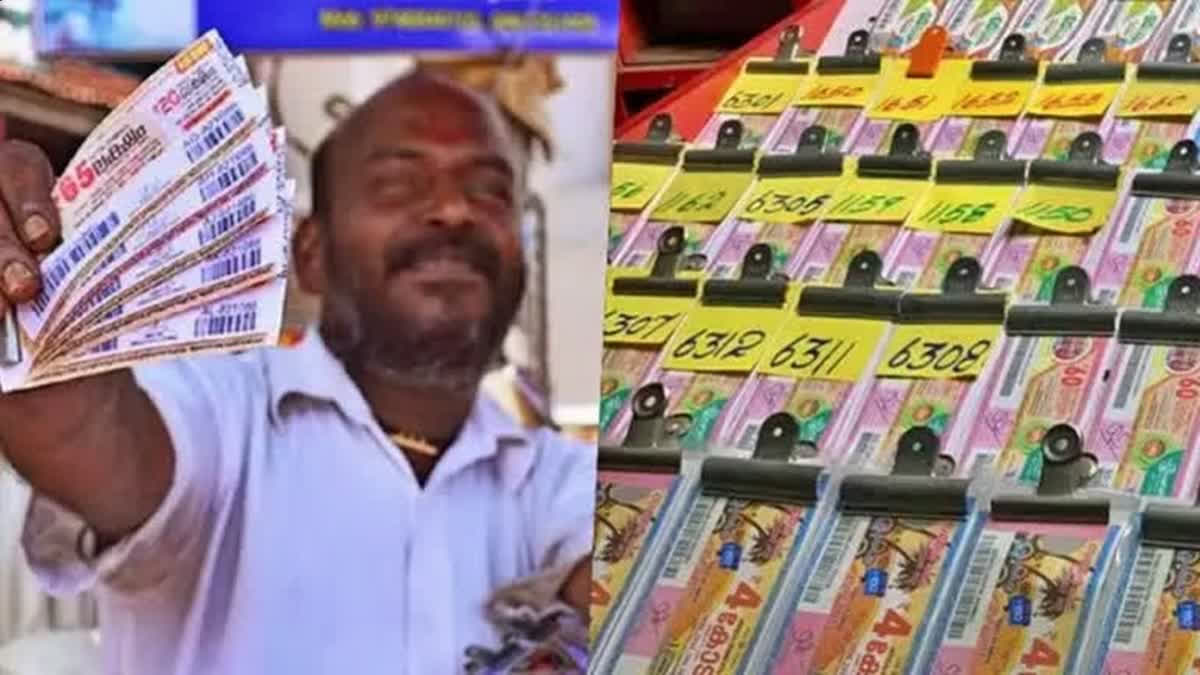New Delhi: The Supreme Court on Tuesday said that the central government cannot impose service tax on the sale of lotteries.
The judgment was pronounced by Justice B V Nagarathna. The apex court dismissed a plea filed by the central government claiming that it is entitled to impose service tax on lotteries.
It upheld the order passed by the Sikkim High Court, which ruled that lottery comes within the expression "betting and gambling", which is Entry 62 of the state list, and only the state government can impose tax.
Pronouncing the operative part of the judgment, Justice Nagarathna said there was no service rendered by the lottery distributors. Therefore, service tax is not leviable. The bench made it clear that it will not take a different view than what the Sikkim High Court had taken in the matter while dismissing the appeal filed by the central government.
The high court had held that the activities of lottery distributors do not constitute a service.
The apex court said that the relationship between the lottery distributor and the state government was principal-principal and not principal-to-agency. It added that since there is no agency in the relationship, the lottery distributors were not liable to pay service tax but made it clear that they would have to pay the gambling tax, which was levied by the state under Entry 62, List II.
The top said, "We find that at each stage, the amendments made to the Finance Act, 1994, in order to impose service tax on the sole distributor/purchaser of the lottery tickets (respondents-assessees herein) have been unsuccessful".
"We have reasoned that the amendment to the said definition would in no way detract from the substance of the relationship between the State Government and the sole distributor or purchaser of the lottery tickets which is one of principal to principal and not of principal-agent," said the bench, also comprising Justice N. Kotiswar Singh.
The bench added that there being no agency and no service rendered by the respondents-assessees herein as an agent to the government of Sikkim, service tax is not leviable on the transactions between the purchaser of the lottery tickets and the government of Sikkim.
The bench said the Finance Act, 2012, by an amendment of the Finance Act, 1994, introduced the Negative List under Section 66D which comprised various services on which no service tax could be levied or collected. "The List included the activity of betting, gambling or lottery. Hence, no service tax on the conduct 116 of the lottery could be levied by the Central Government," it noted.
"Since there is no agency in the relationship, the respondents (lottery distributors) were not liable to pay service tax. However, the respondents will continue to pay the gambling tax levied by the state under Entry 62, List II of the Constitution," said the bench.
The top court noted that the high court held that when a sole purchaser/distributor/promoter purchases the lottery tickets from the state government for the purpose of onward sales through stockists etc., it was not acting as an agent of the state government but in its own right as a principal. It added that the relationship between the state government and the sole distributor was one between a principal and principal and not one between principal and agent.
The bench noted that various clauses of the agreement indicated that the sole distributor was acting in its own right on the purchase of the lottery tickets for onward sales, having regard to the Lotteries Act which is a central government legislation and bearing in mind the faith of the general public/customers in the lottery schemes conducted by the Government of Sikkim.
The bench noted that it was only for the above purposes that various clauses of the agreement sought to enhance transparency in the lottery business, which was a part of the revenue-earning endeavours of Sikkim through various lottery schemes.
"In the circumstances, the High Court set-aside the demands for payment of service tax made by the Central Government”, it noted.
For the period from 01.07.2010 till 30.06.2012, amendment was made to Section 65(105) by insertion of clause (zzzzn) which defined promotion, marketing, organising or in any other manner assisting in organising games of chance, including lottery, bingo or lotto in whatever form or by whatever name called, whether or not conducted through internet or other electronic networks as a "taxable service".
The Sikkim High Court observed that the said clause essentially means the conducting of lotteries within the scope and ambit of betting and gambling as per Entry 62 - List II of the Seventh Schedule of the Constitution and therefore, on the very same activity of betting and gambling, service tax cannot be levied. The apex court’s 120-page judgment came on a batch of pleas filed against a judgment of the Sikkim High Court ruling that the Centre's attempt to impose service tax on lottery operations was impermissible.
The respondent lottery distributors, operating in Sikkim, contended before the bench that they had agreements with the state government in a way that reflects a buyer-seller relationship and not an agency.



